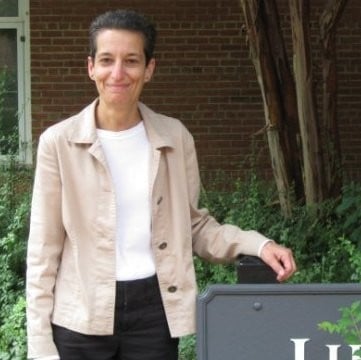You have /5 articles left.
Sign up for a free account or log in.
Celia Rabinowitz, assistant vice president for academic engagement and director of the Mason Library at Keene State College, reached out after reading my piece “How Do Academic Libraries Spend Their Money?” Like many academic librarians who contacted me in response to that post, Celia’s email noted the complexities of library structures, budgets and staffing.
post, Celia’s email noted the complexities of library structures, budgets and staffing.
In an effort to hear directly from academic librarians, I asked Celia if she’d be willing to share some of her thoughts and experiences in a Q&A.
Q: What are the big trends and challenges related to academic libraries that you think our broader higher ed community needs to understand?
A: I think about my response to this in two ways. One represents the trends and challenges most of us in academic libraries are reading about. The trends include declining circulation of print materials, increasing demand for streaming services, the role of the library in data stewardship and in supporting open-access publishing, and new models for journal access, such as transformative agreements, among others. Challenges include addressing the balance of in-person and online/remote services that fit your campus as we slowly emerge from pandemic operations, staffing and budget reductions, considering and prioritizing actions necessary to be responsive to the trends noted above, budget reductions, rebalancing staffing, and did I mention budget reductions?
My other response is that identifying trends and challenges depends. More than ever, I think that the distinctions among academic libraries are driving the challenges in particular. I am not alone among directors of smaller college libraries spending more time than we thought would be needed rethinking staffing so we can keep our libraries open. Or working on plans for workflow without staff covering essential services like cataloging. The challenges noted above are affecting academic libraries in different ways, and our ability to address them may have a lot to do with whether, and how, we can not only maintain our levels of service but also plan for change that embraces those trends.
Q: If you were going to advise allies of academic libraries and librarians, what are the talking points you’d like us to stress in our advocacy and support?
A: This is a great question. I think the most important thing is that an academic library is part of a larger organization. So the talking points you can use should support your library. Advocacy and support rest on an understanding of your colleagues. Is that latest trend you read about feasible for your library? Ask. If it is, ask whether there are barriers your library colleagues face. If so, your support could be to advocate for the resources needed for your library to make change. If not, ask why.
Librarians have become skilled at budgeting for inflation and growth in collections through a careful collection overview that includes canceling low-use titles and leaving buffers in budgets to cover cost increases. If you are in a position on your campus to support the ability of library managers to cover costs and to plan for new expenditures within static budgets, we always appreciate your efforts to demonstrate confidence and trust in what we do. We tend to be responsible and effective fiscal agents of our institutions. Static budgets over years are the equivalent of budget reductions. Add actual budget reductions on top, and we are making hard decisions.
I would like talking points to move away from platitudes about the library and to focus on the role academic libraries are playing in continuing to provide desired spaces for work and study, essential services like Interlibrary Loan, database coordination and management, and information literacy instruction as well as integrating newer services like data warehousing, primary source literacy and OER development.
Q: What advice might you give to early and midcareer academic librarians interested in moving into leadership roles?
A: It can be very useful to observe library leaders in your own library and at others. I learned a lot about what I liked, and more importantly, what I did not, about leadership styles by watching and with the leaders in organizations where I worked. If there are opportunities to assume leadership or management roles, take them on. I once had a staff member tell me they could not lead a group effectively because they did not have any “control” over the members (meaning supervisory control). That interaction taught me a lot about how people view leadership.
I did not plan for my entrance into library leadership roles, but I think it’s fine for someone to have an idea that a career goal is to move into that role. Find opportunities in your library or at the regional/national levels of our professional organizations to get some experience. Read. Especially about higher ed. IHE is a great place to start. We will want you sitting at the Provost’s table and advocating on behalf of your library and your staff. The more you keep up with trends and challenges facing academic libraries and higher ed, the more effective you will be. Plus—it’s interesting.




